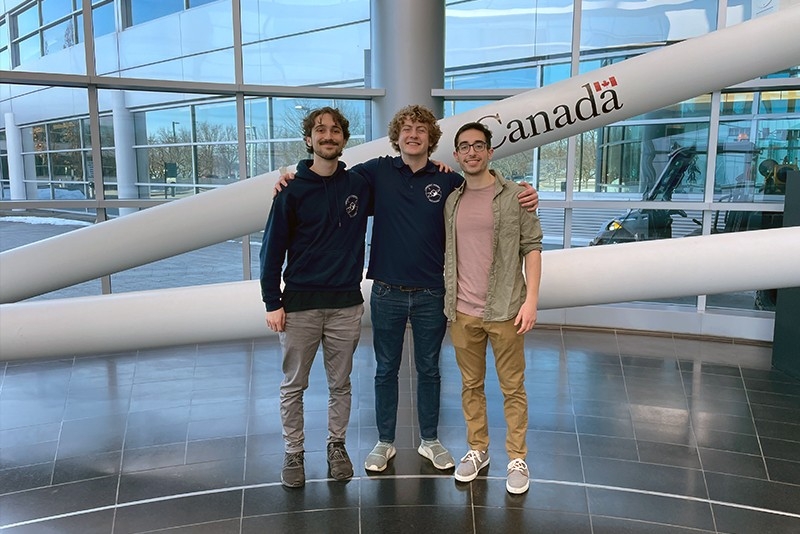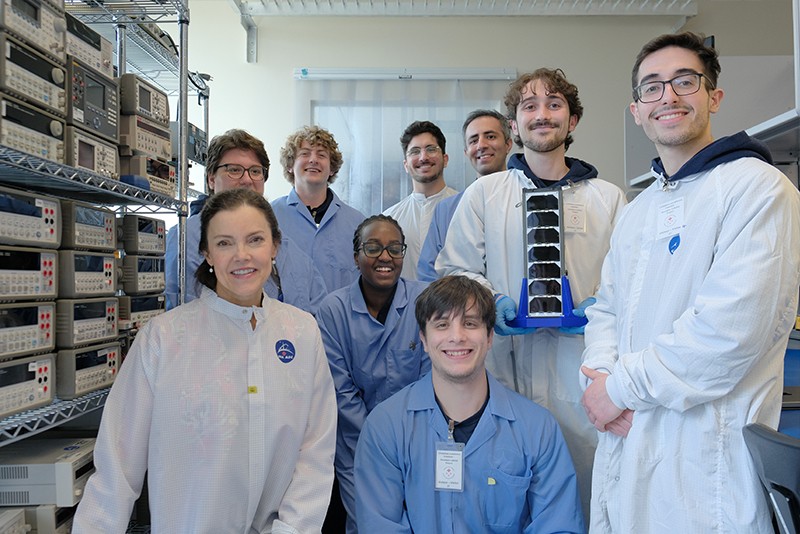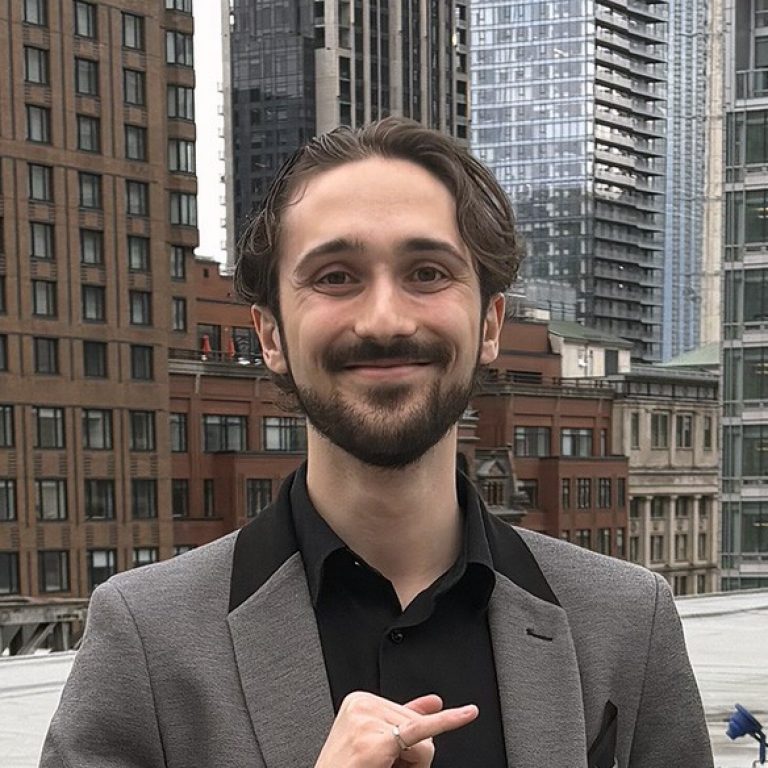Gabriel Dubé
Bachelor of Engineering 25
Bachelor in Engineering
Option: Electrical Engineering (Co-op)
“At Space Concordia, I’m gaining practical experience where I can actually apply the concepts I’m learning in class.”
Before graduating from Electrical Engineering, Gabriel Dubé launched a career in the space industry and several satellites into the atmosphere. How? Thanks to the practical experience he gained through the Co-op program and Space Concordia.
How did your Co-op journey begin?
My first Co-op internship was at Bombardier. I’ve always liked planes, but during the internship I realized that aviation might not be the industry I want to work in. I was working with Space Concordia at the same time, which led me to my second internship at the Canadian Space Agency. There I worked on smaller space programs until I applied to MDA Space, which is the largest space company in Canada. I work there now, and I’m planning to continue full-time after graduating.
What's being in Space Concordia like?
I learned so much from being a team lead at Space Concordia. I was responsible for the electronics for launching small satellites. We built a satellite in the Hall Building and sent it to space on a rocket that SpaceX uses, which is really cool. We flew out to Florida to see the launch. For six months, it was going around the Earth. The Canadian Space Agency gave us $350,000 to make a new satellite, and we’ve been working on it for the past two years.
At Space Concordia, I’m gaining practical experience where I can actually apply the concepts I’m learning in class. I was able to get hired at the Canadian Space Agency because of the skills I learned at Space Concordia. Employers look for practical experience, so it makes a big difference to be a student who has actually done hands-on work before.

What was it like working at the Canadian Space Agency?
Working at the Canadian Space Agency was cool because everyone was just as passionate about space as me. Senior employees were interested in getting you to work on projects because they wanted to create and inspire the next generation, which made for a great work
environment. I was working on an educational project where we gave high school students the chance to send balloons up into the sky. They came up with experiments and projects for the balloons, like deployable solar panels or biology projects with new strains of yeast. It was super cool to see what they came up with, and I was also able to help with some of the electronics and electrical engineering designs.
For another project, I was asked to make flight software, which I had to learn from scratch. A month after I finished the internship, I was invited to a video call with my old colleagues. On the call, I watched them send up a balloon into space and keep track of it using my software. I wasn’t even 100% sure the software would work, but it was so cool to see that something I made was being used as intended.
Why space?
I like the space industry because it’s a big challenge to consider everything from temperature changes to safety to the vacuum of space. You can’t just decide a product is done because if
something goes wrong once it reaches space, you can’t go up to repair it. Instead, you must think about every single scenario of what could go wrong and come up with a solution to prevent it.

Do you have any advice for future engineering students who are just starting out at Concordia?
I’ve noticed that the students who challenge themselves to try new things end up more successful. You need to apply the things you learn in class by joining student groups or Co-op. There are so many different clubs at Concordia that you can join, so find something that aligns with your interests. If it doesn’t work out, that’s fine. My first internship wasn’t in the industry I wanted to be in, but I was able to see what I didn’t want to do.
On top of the technical knowledge and work experience that I gained, everyone that I worked with at Space Concordia are all my close friends now. We have a big group of friends and always keep in touch, so don’t underestimate the social aspect of things.
Find your community at Concordia in one of our 200+ student groups – there's something for everyone!


